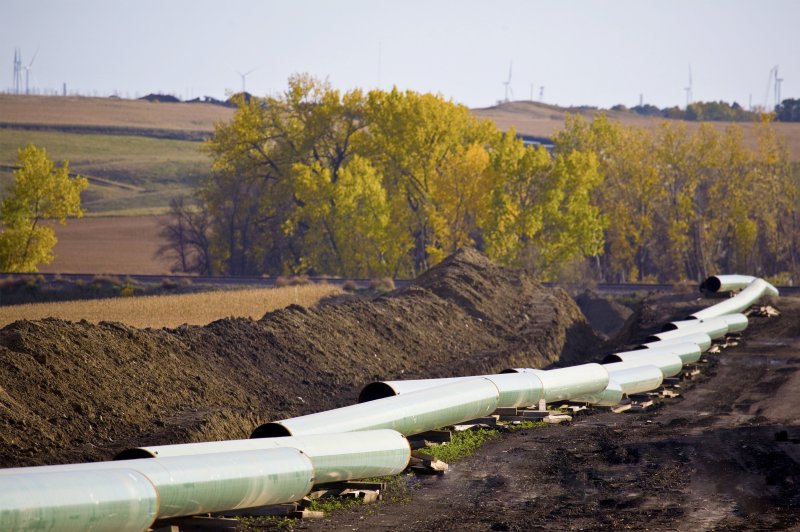Oil and gas lobby group says EPA's latest comments on Keystone XL another example of unnecessary delays. (courtesy TransCanada)
WASHINGTON, Feb. 4 (UPI) -- A statement from the EPA on how low oil prices may influence decisions on Keystone XL pipeline ruffled feathers, with the industry crying foul.
The Environmental Protection Agency said assessments made to date on the pipeline meant to cross the U.S.-Canadian border should be re-evaluated because crude oil prices are about 40 percent lower than when most recent considerations were made.
Pipeline planner TransCanada submitted an application to the U.S. government to build Keystone XL more than six years ago. Louis Finkel, executive vice president for the American Petroleum Institute, said the EPA's decision is another example of bureaucratic delays.
"Suggesting that the drop in oil prices requires a re-evaluation of the environmental impact of the project is just another attempt to prolong the KXL review," he said in a statement.
Members of the Republican-led Congress said getting Keystone XL approved would be job No. 1, though the White House said any move to undermine normal vetting processes would be met with a veto.
Supporters of the pipeline view it as a source of energy security and economic stimulus, while opponents argue some of those claims are vastly overstated.
For Friends of the Earth, the EPA's comments back concerns expressed by those in the environmental community.
"The EPA today confirmed what we've been saying all along: that the Keystone XL pipeline fails President Obama's climate test," climate associate Luisa Abbott Galvao said in a statement.
A State Department review of Keystone XL found some of the environmental concerns surrounding Keystone XL, which would carry a heavier grade of Canadian crude oil considered carbon-intensive to produce, would be prevalent with or without the pipeline.
Reviews of Keystone XL found that oil prices in the range of $65 per barrel, about $15 more than the current price, could lead to more Canadian oil production and lead potentially to more greenhouse gas emissions as a result.
The EPA recommended additional considerations be made for Keystone XL "due to the potential implications of lower oil prices on project impacts, especially greenhouse gas emissions."















